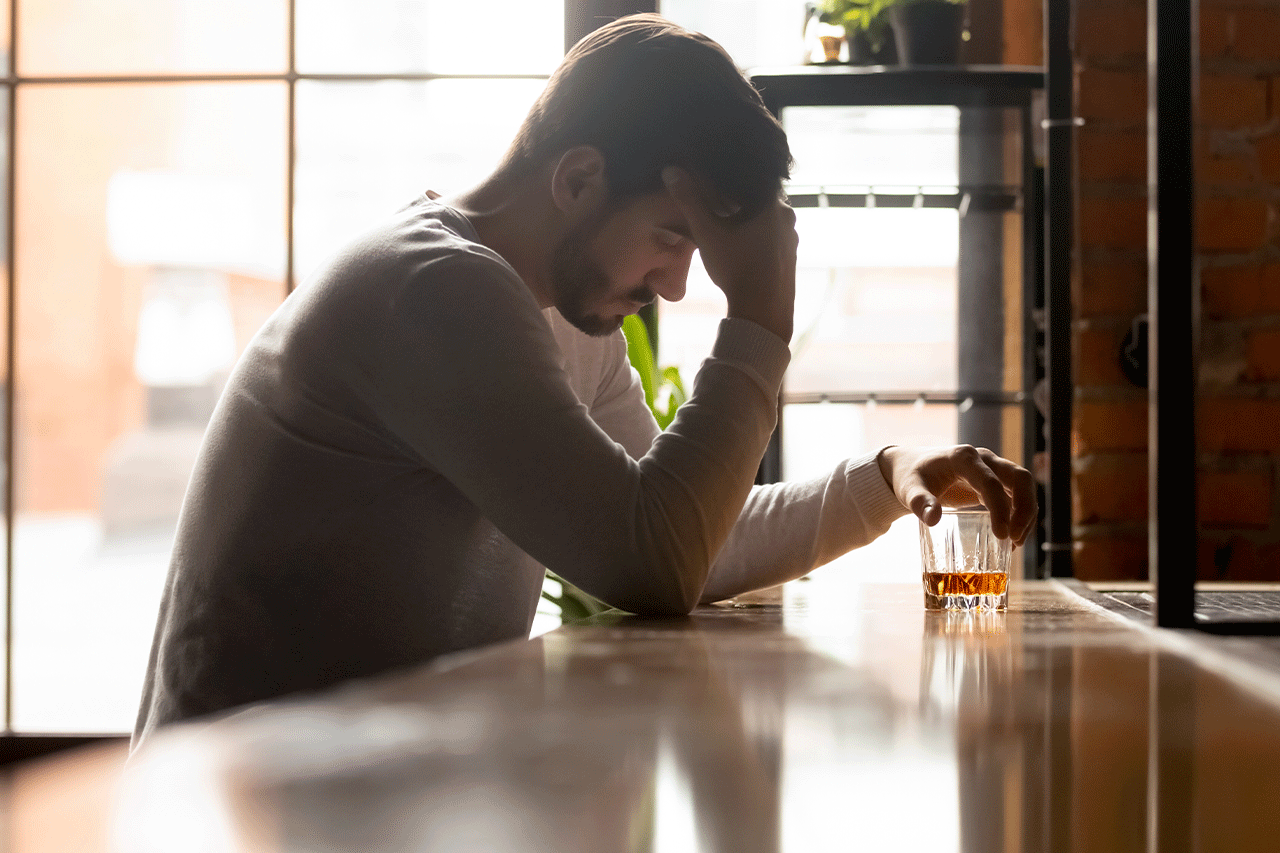For a while now, alcohol has been linked to relaxation and stress relief. Quite a few individuals resort to alcohol as a means of dealing with the demands and obstacles encountered in their daily lives. However, does alcohol truly induce stress?
In this article, we will inspect the association between alcohol consumption and stress, analyzing why people believe that consuming alcoholic beverages leaves them feeling stressed.
Furthermore, we will deeply delve into the various factors that can contribute to experiencing feelings of stress while under the influence of an alcoholic beverage.
Therefore, grab yourself some refreshments (of the non-alcoholic variety), and let us embark on this exploration!
Table of Contents
ToggleWhy Do People Think Drinking Alcohol Makes Them Stressed?

Following a long and difficult day filled with demands, strain, and turmoil, one might envision seeking solace in the local pub to indulge in a refreshing pint of beer. Perhaps even partaking in a few invigorating tequila shots as well.
This post-work ritual is a commonly practiced custom among many individuals. It has become ingrained within particular regions, such as Australia, as an integral aspect of their culture. However, does consuming alcohol truly alleviate stress? Or does it inadvertently exacerbate the situation?
Allow me to present several rationales behind why people believe that imbibing spirits may be responsible for heightened levels of stress.
Positive Feelings and Relaxation
Some individuals think alcohol causes stress as it can initially induce sensations and a sense of relaxation. When consumed in moderation, alcohol may contribute to feelings of calmness and reduced anxiety. This initial experience of relaxation might give the impression that alcohol helps alleviate stress. Nevertheless, it’s crucial to recognize that this effect is short-lived and can be deceiving.
Coping Mechanism
Alcohol can be seen by many as a stress catalyst, owing to its function as a coping tool for tackling stress. When faced with demanding circumstances, particular individuals turn to alcohol as an outlet or emotional dampener. Consequently, it creates a pattern where people establish a connection between alcohol and stress as a strategy for handling life’s obstacles.
Perceived Social Benefits
Many people associate drinking alcohol with socializing and enjoying themselves in the presence of friends. Some individuals might perceive alcohol as a trigger for stress due to its association with anxiety-inducing situations. However, it is necessary to distinguish between the act of drinking and the actual impact of alcohol on stress levels.
Does Alcohol Make You Stressed?
Now that you know the reason behind people assuming that alcohol causes stress instead of using it as a coping mechanism, let’s explore the factors contributing to this feedback.
1. Physiological Imbalance
When alcohol enters your body, it disrupts its balance, which in turn, exacerbates stress levels. Alcohol functions as a depressant, slowing down bodily processes and impacting your perception of emotions, movement, vision, and hearing. These disturbances can intensify feelings of stress and cause discomfort.
2. Increased Risk-Taking Behavior
When you consume alcohol, it can lead to behaviors that have consequences and increase stress levels. The effects of alcohol impair your judgment and decision-making abilities, making you more prone to taking regrettable risks. This heightened risk can contribute to distress and exacerbate existing feelings of stress.
3. Interference with Sleep
Drinking alcohol can disrupt your natural sleep patterns, negatively impacting the quality of your sleep. While it may help you fall asleep quickly, it can disturb later phases of your sleep, leading to insufficient rest and heightened feelings of stress and tiredness. Insufficient and disturbed sleep significantly affects your overall wellness and contributes to increased stress levels.
4. Emotional Instability
Alcohol can potentially amplify your emotions and lead to instability. While some individuals may experience temporary relaxation from drinking, it is possible for you to feel more agitated, aggressive, or anxious. These fluctuations in emotions can contribute to heightened stress levels and a sense of unease.
5. Relationship Strain
Drinking alcohol can often strain relationships. This strain results in conflicts and tension with the people you care about, ultimately creating an atmosphere that contributes to feelings of stress and uneasiness.
6. Legal Issues
When engaging in activities under the influence of alcohol, there can be legal consequences to consider. These may include charges such as DUI or public intoxication. Dealing with these issues can cause a great deal of stress and have long-lasting effects on various aspects of your life.
7. Financial Burden
Drinking alcohol frequently can pose risks to your finances. The expenses associated with purchasing alcohol can accumulate over time, which in turn can lead to financial stress and the need to manage expenses responsibly.
8. Hangovers
Drinking alcohol can result in experiencing hangovers. Hangovers often come with symptoms like headaches, nausea, tiredness, and irritability. The emotional discomfort caused by a hangover may outweigh any stress relief it provides.
9. Memory Loss and Regret
Drinking alcohol can lead to blackouts and memory loss. This means you might forget things or events that occurred while being intoxicated. The fear of not recollecting what happened and the possibility of feeling regret can contribute to heightened stress levels.
Conclusion
In conclusion, the relationship between alcohol and stress is complex. While some may believe that alcohol worsens stress levels, it is essential to consider the underlying factors involved.
Initially, alcohol may create a sense of relaxation and comfort. However, it can eventually lead to feelings of stress as it affects both the body and mind. Several factors, such as imbalance, engaging in risky behavior disturbances, sleep patterns, and emotional instability, can contribute to experiencing stress while under the influence of alcohol.
To maintain a healthy emotional well-being, you need to approach alcohol consumption in moderation. Rather than relying on alcohol as a coping mechanism for stress, it is advisable to explore alternative methods such as engaging in exercise, connecting with others, and practicing mindfulness. By doing so, you can effectively manage your emotions while promoting overall wellness.
If you turn to alcohol for relief, remember that it’s not a sustainable solution for managing stress. So, before reaching for a drink, take a moment to consider how it may affect your stress levels. Instead, explore strategies that promote peace and relaxation.

I am a passionate beer connoisseur with a deep appreciation for the art and science of brewing. With years of experience tasting and evaluating various beers, I love to share my opinions and insights with others and I am always eager to engage in lively discussions about my favorite beverage.
















